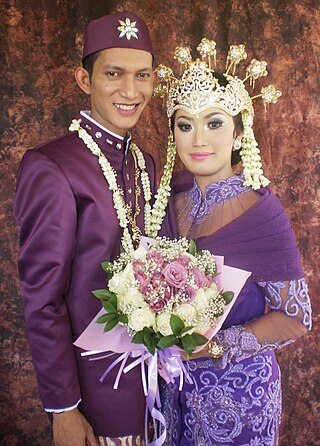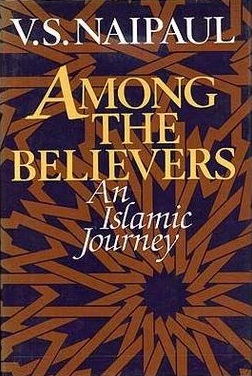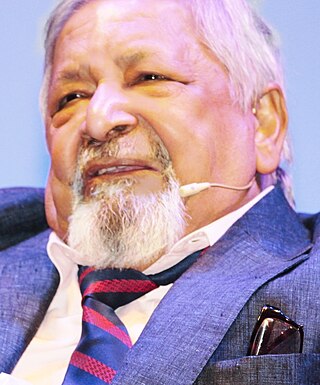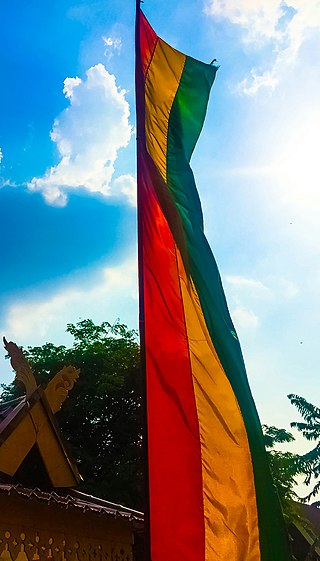
A missionary is a member of a religious group that is sent into an area in order to promote its faith or provide services to people, such as education, literacy, social justice, health care, and economic development.

Islamic–Jewish relations comprise the human and diplomatic relations between Jewish people and Muslims in the Arabian Peninsula, Northern Africa, the Middle East, and their surrounding regions. Jewish–Islamic relations may also refer to the shared and disputed ideals between Judaism and Islam, which began roughly in the 7th century CE with the origin and spread of Islam in the Arabian peninsula. The two religions share similar values, guidelines, and principles. Islam also incorporates Jewish history as a part of its own. Muslims regard the Children of Israel as an important religious concept in Islam. Moses, the most important prophet of Judaism, is also considered a prophet and messenger in Islam. Moses is mentioned in the Quran more than any other individual, and his life is narrated and recounted more than that of any other prophet. There are approximately 43 references to the Israelites in the Quran, and many in the Hadith. Later rabbinic authorities and Jewish scholars such as Maimonides discussed the relationship between Islam and Jewish law. Maimonides himself, it has been argued, was influenced by Islamic legal thought.

Islam in Malaysia is represented by the Shafi‘i school of Sunni jurisprudence. Islam was introduced to Malaysia by traders arriving from Persia, Arabia, China and the Indian subcontinent. It became firmly established in the 15th century. In the Constitution of Malaysia, Islam is granted the status of "religion of the Federation" to symbolize its importance to Malaysian society, while defining Malaysia constitutionally as a secular state. Therefore, other religions can be practiced legally, though freedom of religion is still limited in Malaysia.

The Sundanese are an indigenous ethnic group native to the western region of Java island in Indonesia, primarily West Java. They number approximately 42 million and form Indonesia's second most populous ethnic group. They speak the Sundanese language, which is part of the Austronesian languages.
In classical Islamic literature the futūḥ were the early Arab-Muslim conquests of Egypt, Syria, Mesopotamia, etc. which facilitated the spread of Islam and Islamic civilization.

Islam in Vietnam is primarily the religion of the Cham people, an Austronesian minority ethnic group; however, roughly one-third of Muslims in Vietnam are of other ethnic groups. There is also a community, which describes itself as of mixed ethnic origins, that practices Islam and is also known as the Cham, or Cham Muslims, around the region of Châu Đốc in the Southwest.

Indonesians are citizens or people who are identified with the country of Indonesia, regardless of their ethnic or religious background. There are more than 1,300 ethnicities in Indonesia, making it a multicultural archipelagic country with a diversity of languages, culture and religious beliefs. The population of Indonesia according to the 2020 national census was 270.2 million. 56% live on the island of Java, the world's most populous island. Around 95% of Indonesians are Native Indonesians, with 40% Javanese and 15% Sundanese forming the majority, while the other 5% are Indonesians with ancestry from foreign origin, such as Arab Indonesians, Chinese Indonesians, Indian Indonesians, and Indos.
Forced conversion is the adoption of a religion or irreligion under duress. Someone who has been forced to convert to a different religion or irreligion may continue, covertly, to adhere to the beliefs and practices which were originally held, while outwardly behaving as a convert. Crypto-Jews, Crypto-Christians, Crypto-Muslims and Crypto-Pagans are historical examples of the latter.
Islam is the most widely practised religion in Southeast Asia, numbering approximately 240 million adherents which translate to about 42% of the entire population, with majorities in Brunei, Indonesia and Malaysia as well parts of Southern Thailand and parts of Mindanao in the Philippines respectively. Significant minorities are located in the other Southeast Asian states. Most Muslims in Southeast Asia are Sunni and follow the Shafi`i school of fiqh, or religious law. It is the official religion in Malaysia and Brunei while it is one of the six official faiths in Indonesia.

Among the Believers: An Islamic Journey is a book by the Nobel laureate V. S. Naipaul. Published in 1981, the book describes a six-month journey across the Asian continent after the Iranian Revolution. V.S. Naipaul explores the culture and the explosive situation in countries where Islamic fundamentalism was growing. His travels start with Iran, on to Pakistan, Malaysia and end in Indonesia, with a short stop in Pakistan and Iran on the return to the UK.
Imaduddin Abdulrahim, also known as Bang Imad, was an Indonesian religious and political activist and the spiritual head of the Indonesian Association of Muslim Intellectuals (ICMI). During 1960s and 1970s he served for 17 years as an electrical engineer by training at the Bandung Institute of Technology. On May 1978 Imaduddin was imprisoned for 14 months by the Suharto regime for his Islamic activism.

Malaysian folk religion refers to the animistic and polytheistic beliefs and practices that are still held by many in the Islamic-majority country of Malaysia. Folk religion in Malaysia is practised either openly or covertly depending on the type of rituals performed.

The Acehnese are an indigenous ethnic group from Aceh, Indonesia on the northernmost tip of the island of Sumatra. The area has a history of political struggle against the Dutch colonial rule. The vast majority of the Acehnese people are Muslims. The Acehnese people are also referred to by other names such as Lam Muri, Lambri, Akhir, Achin, Asji, A-tse and Atse. Their language, Acehnese, belongs to the Aceh–Chamic group of Malayo-Polynesian of the Austronesian language family.

Sir Vidiadhar Surajprasad Naipaul was a Trinidadian-born British writer of works of fiction and nonfiction in English. He is known for his comic early novels set in Trinidad, his bleaker novels of alienation in the wider world, and his vigilant chronicles of life and travels. He wrote in prose that was widely admired, but his views sometimes aroused controversy. He published more than thirty books over fifty years.
Sarawak's population is very diverse, comprising many races and ethnic groups. Sarawak has more than 40 sub-ethnic groups, each with its own distinct language, culture and lifestyle. This makes Sarawak demography very distinct and unique compared to its Peninsular counterpart. However, it largely mirrors to other territories in Borneo - Sabah, Brunei and Kalimantan.

Malayisation or Malayization is a process of assimilation and acculturation, that involves acquisition or imposition of elements of Malay culture, in particular, Islam and the Malay language, as experienced by non-Malay populations of territories fully controlled or partially influenced by historical Malay sultanates and modern Malay-speaking countries. It is often described as a process of civilisational expansion, drawing a wide range of indigenous peoples into the Muslim, Malay-speaking polities of Maritime Southeast Asia. Examples of Malayisation have occurred throughout Asia including in Brunei, Cambodia, Indonesia, Malaysia, Singapore, and Sri Lanka.
Malay is spoken by a minority of Filipinos, particularly in the Palawan, Sulu Archipelago and parts of Mindanao, mostly in the form of trade and creole languages, such as Sabah Malay.

Malays played a significant role in pre-Hispanic Philippine history. Malay involvement in Philippine history goes back to the Classical Era with the establishment of Rajahnates as well as the Islamic era, in which various sultanates and Islamic states were formed in Mindanao, the Sulu Archipelago, and around Manila.
The spread of Islam spans almost 1,500 years. The early Muslim conquests that occurred following the death of Muhammad in 632 CE led to the creation of the caliphates, occupying a vast geographical area; conversion to Islam was boosted by Arab Muslim forces conquering vast territories and building imperial structures over time. Most of the significant expansion occurred during the reign of the rāshidūn ("rightly-guided") caliphs from 632 to 661 CE, which were the first four successors of Muhammad. These early caliphates, coupled with Muslim economics and trading, the Islamic Golden Age, and the age of the Islamic gunpowder empires, resulted in Islam's spread outwards from Mecca towards the Indian, Atlantic, and Pacific Oceans and the creation of the Muslim world. The Islamic conquests, which culminated in the Arab empire being established across three continents, enriched the Muslim world, achieving the economic preconditions for the emergence of this institution owing to the emphasis attached to Islamic teachings. Trade played an important role in the spread of Islam in some parts of the world, such as Indonesia.
Ex-Muslims are people who were raised as Muslims or converted to Islam and later left the religion of Islam. Challenges come from the conditions and history of Islam, Islamic culture and jurisprudence, and sometimes local Muslim culture. This has led to increasingly organized literary and social activism by ex-Muslims, and the development of mutual support networks and organizations to meet the challenges of abandoning the beliefs and practices of Islam and to raise awareness of human rights abuses suffered by ex-Muslims.












